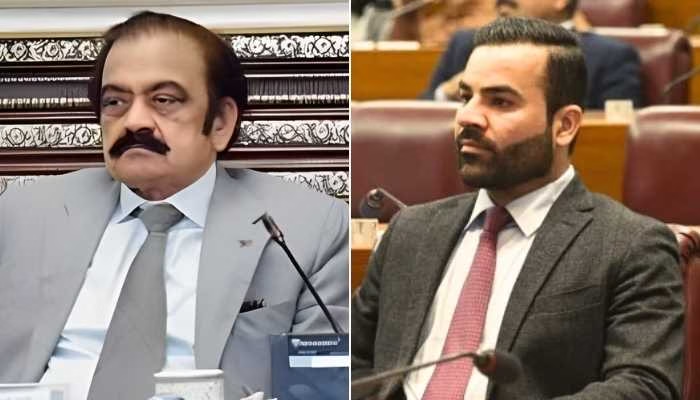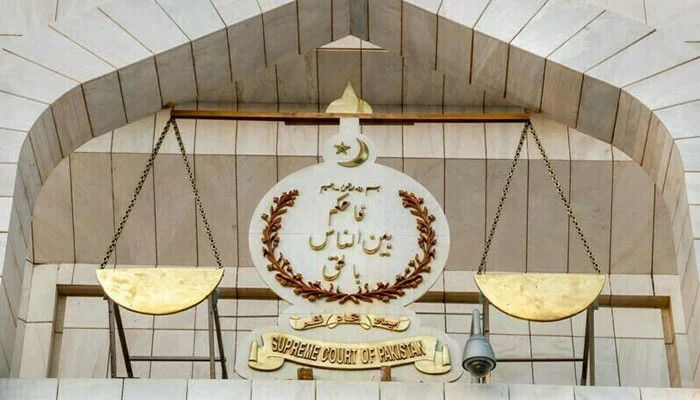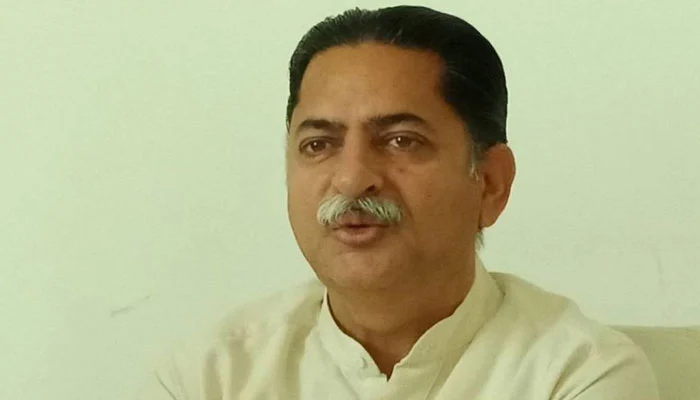The 27th Constitutional Amendment has triggered a major political and judicial debate in Pakistan after two Supreme Court judges — Justice Mansoor Ali Shah and Justice Athar Minallah — tendered their resignations. The PML-N government, which led the passage of the amendment, responded strongly, calling the judges’ resignations political speeches rather than constitutional objections.
Background of the 27th Constitutional Amendment
The 27th Constitutional Amendment, recently passed by Parliament and signed by President Asif Ali Zardari, has reshaped the judicial structure by establishing constitutional courts aimed at enhancing the efficiency of justice delivery. Supporters of the amendment argue that it strengthens institutional balance and fulfills long-standing provisions of the Charter of Democracy. Critics, however, claim that the amendment undermines the independence of the judiciary.
Justice Mansoor Ali Shah, in his resignation letter, stated that by fracturing the unity of the nation’s apex court,the amendment has crippled judicial independence and integrity, pushing the country back by decades. Justice Athar Minallah echoed similar sentiments, expressing his inability to continue serving under the new judicial framework.
Government’s Response: Political and Unconstitutional Claims
The PML-N-led federal government immediately countered the judges’ statements, defending the legality and intent behind the 27th Constitutional Amendment. Rana Sanaullah, the Special Assistant to the Prime Minister on Political Affairs, called the two judges respectable but accused them of pursuing a “political” and “self-serving” agenda.
Speaking to the media, Rana Sanaullah stated that the letters written by the judges contained political rhetoric rather than legal arguments. “Both judges could not point out a single clause in the 27th Amendment that violates the Constitution,” he said. The former interior minister added that some judicial decisions in recent years were decided by narrow margins — such as 8-7 — and that the resigning judges had been part of those “divisive” decisions, contributing to internal rifts in the judiciary.
Sanaullah further remarked that while President Zardari holds the constitutional authority to decide on the judges’ resignations, the public deserves transparency. If the judges claim the Supreme Court is fractured, they should explain how, he demanded.
Barrister Aqeel Malik: Parliament’s Right to Amend the Constitution Cannot Be Questioned
In a separate statement, Minister of State for Law and Justice Barrister Aqeel Malik called the judges’ letters unconstitutional and reiterated that Parliament holds absolute authority to legislate and amend the Constitution. Judges have every right to resign,” he said, but calling the 27th Amendment an attack on the judiciary is legally and constitutionally incorrect.
He noted that if the judges had any grievances, they should have communicated them through the proper institutional channels — particularly to the Chief Justice of Pakistan. There was earlier correspondence, but when Parliament exercised its constitutional right, they chose to resign, he explained.
Barrister Aqeel also emphasized that such resignations could be considered unconstitutional acts in several respects, since they undermine Parliament’s role in legislative reform. However, he rejected the notion that a clash exists between the judiciary and the government. There is no institutional conflict. Parliament is performing its constitutional duties within its defined boundaries, he asserted.
The Constitution Empowers Parliament to Legislate and Reform
The Law Minister reaffirmed that the Constitution itself establishes the Supreme Court and defines its powers — hence, no constitutional amendment can be seen as an attack on the judiciary. Even laws concerning the Supreme Court are enacted by Parliament, he noted. The 27th Amendment will bring improvement, not conflict, within the judicial system.
Barrister Aqeel added that constitutional amendments are legitimate tools for reform and cannot be legally challenged. The Constitution allows amendments when required for the nation’s progress. Such reforms cannot be labeled as threats to judicial independence,he said.
Criticism of Politicization of the Judiciary
Both government officials highlighted a recurring issue — the political use of the judiciary. Barrister Aqeel Malik criticized what he termed political games played in the courts,saying that such trends weaken institutional credibility. Decisions should be made based on law and justice, not personal or political interests, he stated.
Similarly, Rana Sanaullah expressed concern over what he described as judicial activism driven by personal narratives. He said that it was unbecoming for senior judges to issue politically charged resignation letters that appear more like speeches than statements of principle.
Political and Legal Implications
The resignations of two senior judges at a time when the judiciary is under increased scrutiny have added to the country’s political tension. Supporters of the judges view their decision as a principled stand for judicial independence, while the government and its allies see it as an attempt to politicize the judiciary and undermine parliamentary sovereignty.
Legal experts note that this development could deepen divisions within the Supreme Court itself. However, they also point out that constitutional amendments passed by both houses of Parliament are among the most robust legal instruments in the country and are unlikely to be overturned.
The PML-N government’s response to the Supreme Court judges’ resignations underscores a long-standing tension between Pakistan’s judiciary and legislature. While Justices Mansoor Ali Shah and Athar Minallah argue that the 27th Constitutional Amendment undermines judicial independence, the government insists it strengthens democracy by reinforcing institutional boundaries.
As Pakistan moves forward under this new legal framework, the episode reflects a broader debate on the balance of power between Parliament and the judiciary — a debate that has defined much of the country’s constitutional evolution. Whether seen as reform or regression, the 27th Amendment continues to reshape the conversation about governance, law, and institutional accountability in Pakistan.



